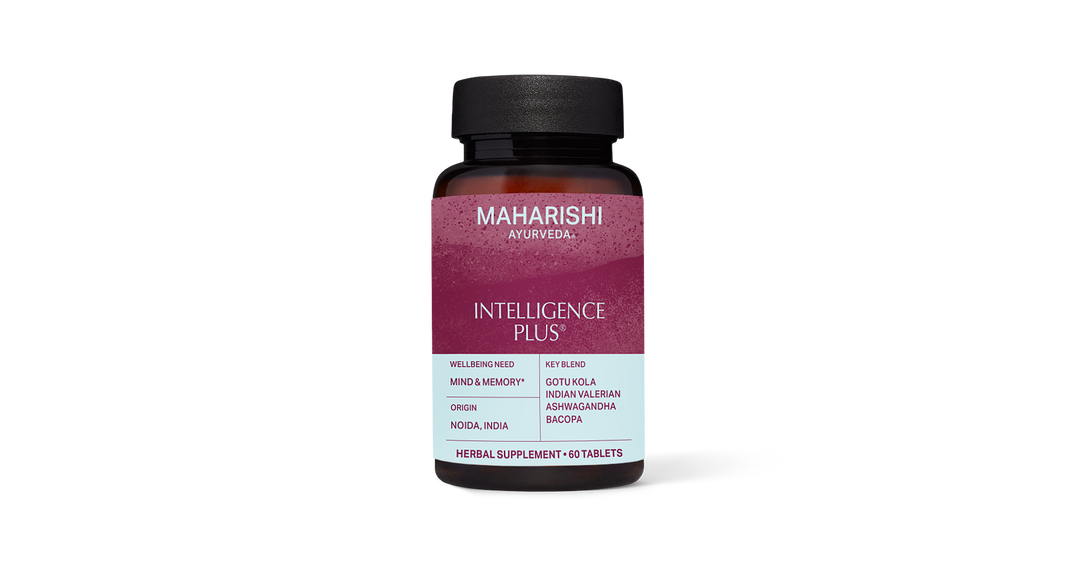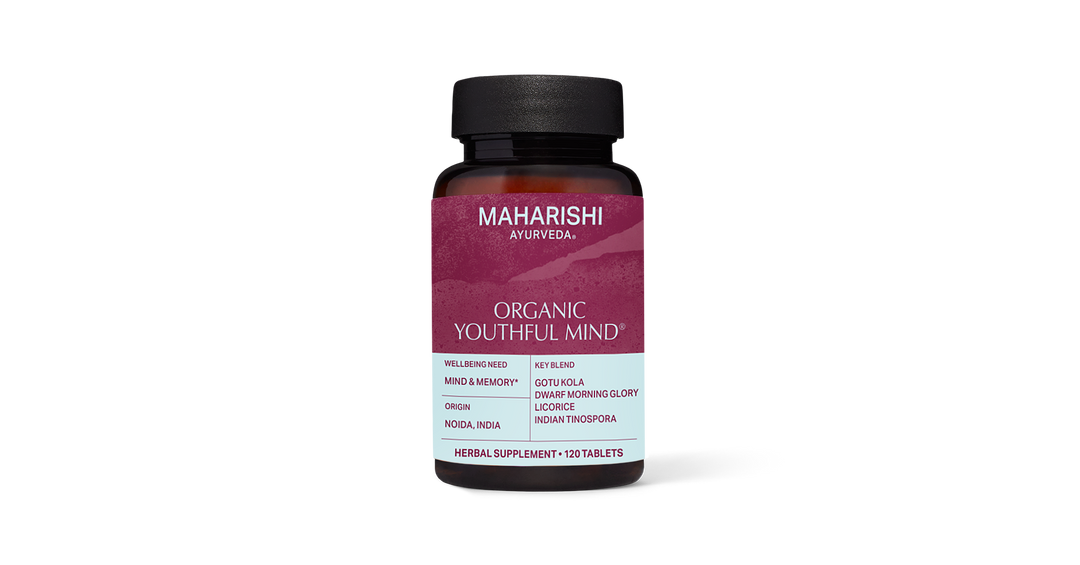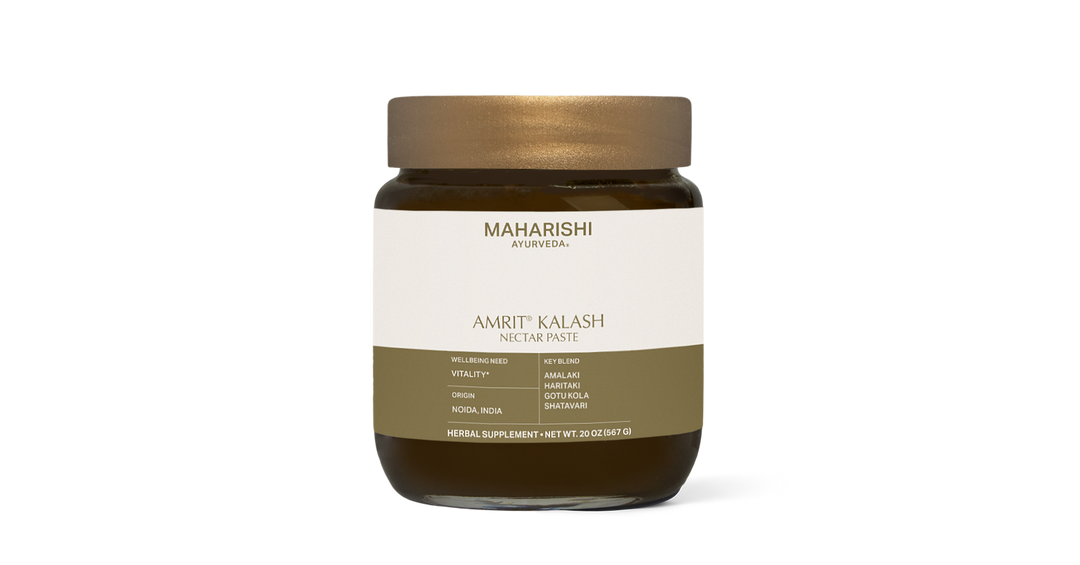With sharpened pencils and colorful new backpacks, millions of school children have returned to the freshly-scrubbed hallways of the nation's schools to begin a new year of learning and development.
How can you make sure your child is getting the most out of the hours spent in school? One way is to enhance learning ability with the natural techniques of Maharishi Ayurveda.
Learning and ADHD - Ayurveda basics
Ayurvedic texts describe three aspects of mental ability: dhi (the power of acquisition or learning), dhriti (the power of retention), and smriti (the ability to recall). When the three mental functions are not in balance, either individually or in their coordination with one another, then learning problems can crop up. Children who have learning problems often feel like failures in school, which leads to frustration and low self-esteem.
When these three mental functions are coordinated, then the child's memory is quick and bright. If impurities (ama) are obstructing the channels of communication between these three functions, then not only learning problems but behavioral problems can begin. The high incidence of Attention Deficit Hyperactivity Disorder (ADHD) in this country is a prime example of a learning/behavioral problem for millions of children. According to the Center for Disease Control and Prevention (CDC) using data from 2016-2019, an estimated six million children aged 3-17 years have been diagnosed with ADHD in the US.
What Maharishi Ayurveda says
What causes some children to thrive on learning while others struggle? According to Maharishi Ayurveda, most learning problems are caused by eating food that is lacking in intelligence. By this we mean junk food, food that is not fresh, and food laced with chemicals. Food lacking in intelligence disturbs the intellect and mind, and it disrupts the intellectual rhythm between dhi, dhriti, and smriti.
This is especially true for children, who are naturally more sensitive than adults. Modern researchers are just discovering the link between learning disorders and harmful food additives such as the chemical food preservatives BHT and BHA, the cake-rising agent calcium silicate, and other colorings, flavorings, and emulsifiers.
Unfortunately, these harmful food additives and preservatives are found in most packaged foods. A rather shocking study showed that the average person consumes 8–10 pounds of additives a year. Because children have lower body weights and are in the critical developmental years, the harmful effects of these additives are magnified many times. And artificial flavors, colors, and preservatives can cause more allergic reactions in children because they are more sensitive than adults.
When children are eating “unintelligent” food, they are not nourishing the mind with minerals, vitamins, and other aspects of nature's intelligence. And modern researchers confirm ancient Ayurvedic wisdom—that any nutritional deficiency can result in diminished mental function.
Another cause of mental deficiency in children includes not getting enough sleep. If children do not go to bed on time, or if they watch violent TV shows or read frightening comics before bed, that can disrupt sleep and aggravate the doshas, which then can be expressed as poor memory and recall in school. But diet is still most important because diet also affects the quality of sleep. Diet is the primary focus for enhancing mental ability because even herbal compounds won't work if the child is eating unintelligent food.
Addressing three types of learning imbalances
To understand how Maharishi Ayurveda can help nourish the memory and attention span in children, it's important to understand the three subdoshas involved in memory. These are:
- Prana Vata, which governs the brain, sensory perception, and the mind.
- Sadhaka Pitta, which governs the emotions and their effect on the functions of the heart.
- Tarpaka Kapha, which governs the spinal fluids, sinus cavities, and sensory organs.
In Ayurveda, three types of imbalances of the mind are described, and each is associated with a different subdosha. We can correlate diminished learning ability combined with a hyperactive mind, with a breakdown in Prana Vata.
A disturbance in Sadhaka Pitta is associated with a learning imbalance that carries over from childhood into adolescence and young adulthood—the Pitta time of life. And imbalances in Tarpaka Kapha correlate with problems with learning that occur without hyperactivity involved.
For all three types of learning imbalances, Maharishi Ayurveda recommends fresh, organic foods that are prepared using intelligent cooking methods. This means that they are prepared in a way that does not destroy nature's intelligence, and in a way that creates bliss after eating. Also follow an Ayurvedic diet that pacifies the specific subdosha causing the imbalance.
The daily Ayurvedic oil massage (abhyanga) is also a powerful way to balance the doshas and help enhance learning ability. If time does not permit a daily massage, doing it regularly every weekend will help. At night, Slumber Time Aroma Oil can be added to an aroma diffuser by the child's bed to help provide a deeper, more balanced night's sleep.
Ayurvedic herbs for ADHD and mind power
Besides diet and daily routine, Maharishi Ayurveda offers another sophisticated method for addressing imbalances in memory and attention. These include traditional herbal compounds, called Medhya Rasayanas, which provide powerful nourishment for the mind.
Medhya Rasayanas enhance dhi, dhriti, and smriti individually, and they enhance the coordination between these three mental factors. Medhya Rasayanas have also come to the attention of modern researchers.
Take Mandook Purni (a.k.a. gotu kola/Centella Asiatica) for instance. The ancient texts say, "This Mandook Purni is medhya, giving consciousness and rasayana value." And modern research published in the Journal of Psychiatry shows that this herb produced a significant increase in the mental abilities of 30 mentally disabled children. Brahmi (Bacopa Monnieri or Herpestis Monniera) is another important Medhya Rasayana.
The texts mention that brahmi is both medhya and hridya, meaning that it supports both the mind and the heart. A study in the Journal of Ethnopharmacology shows that brahmi improved acquisition, retention, and delayed extinction of newly-acquired behavior in rats.
The third Medhya Rasayana, shankapushpi (aloeweed or dwarf morning glory), appears in the following verse: "Shankapushpi has a specific action as Medhya action." It is also being researched as a memory-enhancing herb. Using these Medhya Rasayanas as a base, Maharishi Ayurveda Products International, Inc. has developed several powerful products to help enhance learning and memory.
For instance, the Intelligence Plus (formerly Study Power) herbal formula is ideal not just for children but students of all ages, because it helps enhance attention span, focus, and the ability to acquire new information and to apply it later.
An impressive 1995 research study published in Free Radical Biology and Medicine found that Intelligence Plus helps increase intelligence. The Medhya Rasayanas are also found in Mind Plus Syrup, which is ideal for helping to calm the mind in stressful situations. It is effective in enhancing problem-solving ability, retention, and recall.
Organic Youthful Mind is especially designed for people over forty, nourishing and revitalizing all three mental functions as the mind ages. These products are ideal for people of all ages who use their minds at school or on the job, and want to feel fresh, creative, and fatigue-free.
Mental performance can be expanded to its full potential. All it requires is going back to the basics: proper nutrition, quality sleep, and the balanced wisdom of herbs that can help nourish the mind in a natural, safe way.
Seven keys to mind power at any age
1. Eat fresh, pure foods
The Council of Maharishi Ayurveda Physicians' advice for kids holds true for everyone;stay away from foods with chemicals, pesticides, or additives. The purer the foods you eat, the more of their intelligence you absorb.
2. Balanced nutrition is essential
A diet rich in healthy proteins, such as from legumes, with plenty of fruits and vegetables, is good for enhancing mental potential. Don't count fats out entirely; they play some essential roles in the physiology and are found in abundance in nuts and seeds.
3. The power of antioxidants
Recent research shows that blueberries are powerful food for the brain because of their antioxidant value. The brain is especially vulnerable to free-radical damage. Take Maharishi Amrit Kalash every day for superior antioxidant protection—it has been shown to have 1,000 times the free-radical scavenging power of vitamin C or E!
4. Get your zzzz's
Research has confirmed that sleep deprivation leads to diminished mental performance. Ayurveda considers sleep to be a basic building block for good mind/body health, just like diet.
5. Manage stress
High levels of stress negatively impact both mind and body. One of the most effective ways to deal with stress is the practice of meditation. To see research on the Transcendental Meditation® technique and ADHD visit: tm.org/meditation/adhd.
6. Regular exercise
Regular aerobic exercise like walking, swimming, or biking for 20-30 minutes three to five times a week is an essential part of a healthy lifestyle that will promote optimal mental functioning.
7. Keep the brain working
Like the battery in your automobile, you have to keep your mind active to keep it running. So keep the creative juices flowing and exercise your brain regularly.
The Vata, Pitta, and Kapha-pacifying dietary guidelines are available at www.mapi.com. We also have several hundred Ayurvedic Recipes available for free.
References
- A. Shaywitz et al "Attention Deficit Hyperactivity Disorder," Advanced Pediatrics, Vol 44 pp. 331-67 (1997).
- E. Duormaa, "The adverse effects of food additives on health: a review of the literature with a special emphasis on childhood hyperactivity," Journal of Automolecular Medicine, Vol. 4, pp. 225-38 (1994).
- Ann Seingold, Why your child is hyperactive, New York, Random House (1975).
- Krause, L. Mahan, "Nutritional care and disease of nervous system and behavioral disorders," Food, Nutrition, & Diet Therapy, pp. 654-670, Philadelphia W.B. Saunders (1984).
- Dsend et al, "The relationship between nutrition and student achievement, behavior and health," Review of the literature by Sacramento, California, State Department of Education (1980).
- Sharma, H. et al, Free Radical Biology and Medicine, Vol. 18. No.4, p. 687-697 (1995).
- Appa Rao, et al, Indian Journal of Psychiatry, Vol. 19 p. 54-59 (1977).
- Singh H. K. and Dhawan B.N., Journal of Ethnopharmacology, Vol. 5, p. 205 (1982).
© 1999, 2021 Maharishi AyurVeda Products International, Inc. (MAPI). All Rights Reserved. MAPI does not provide medical advice, diagnosis or treatment. These statements have not been evaluated by the Food and Drug Administration. Products are not intended to diagnose, treat, cure or prevent any disease. See additional information.








